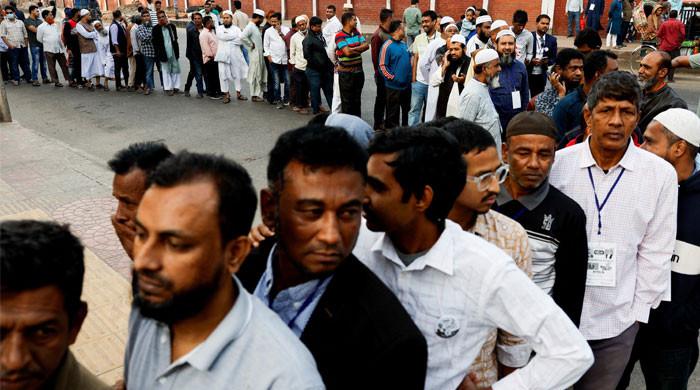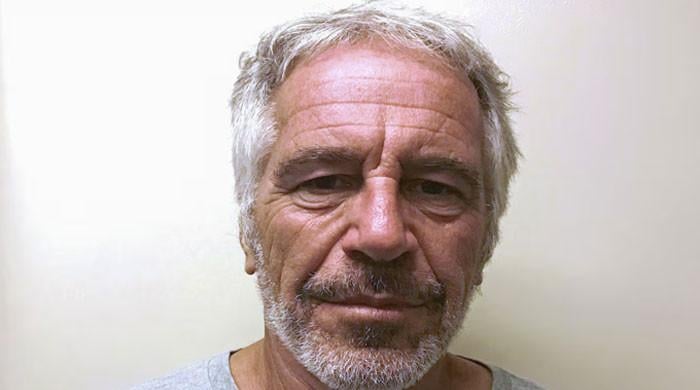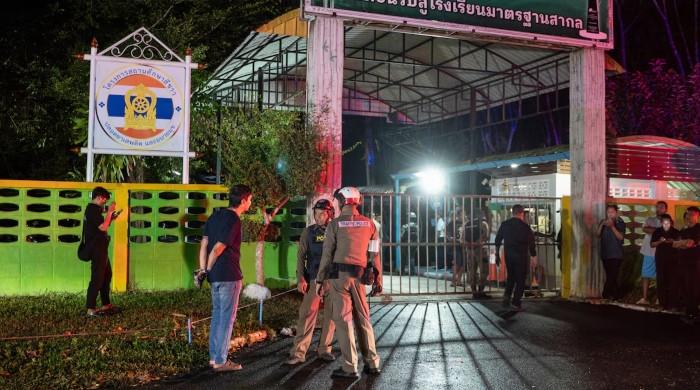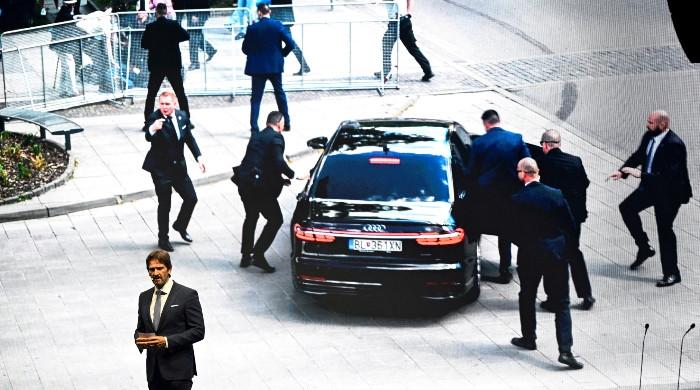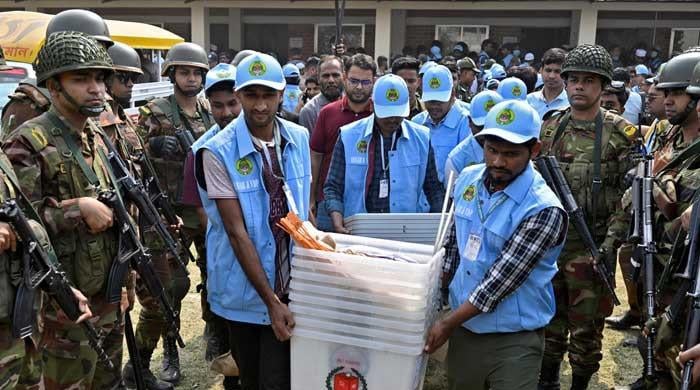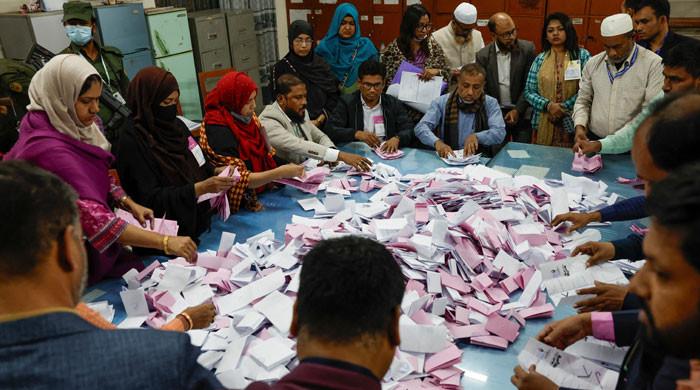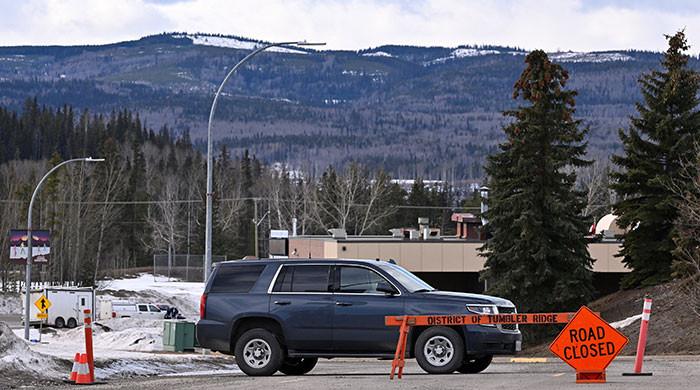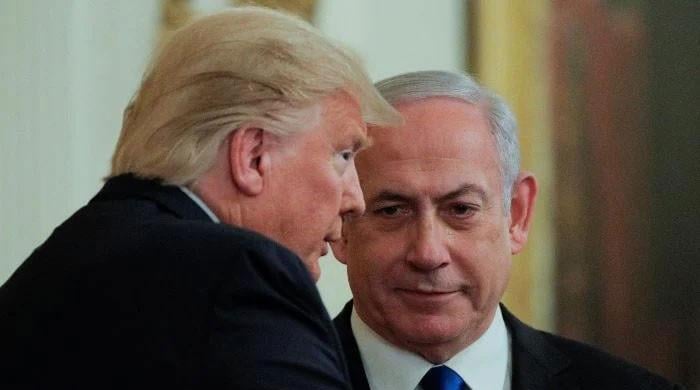China's Xi slams 'bullying' behaviour in world order as SCO nations gather
Russian President Vladimir Putin says NATO enlargement has to be addressed for Ukraine peace
September 01, 2025
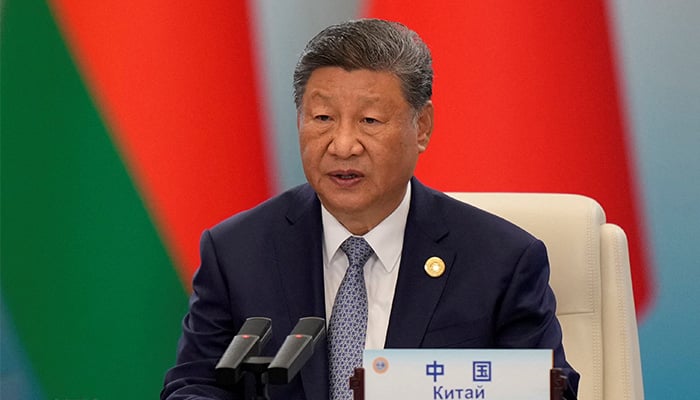
- PM Shehbaz, Russia's Putin, Indian PM Modi and other leaders attend session.
- Xi speaks about constructive participation in int'l affairs, opposes hegemonism.
- SCO has set a model for a new type of international relations: President Xi.
Chinese President Xi Jinping criticised on Monday "bullying behaviour" in the world order as he gathered regional leaders for a summit.
He called on the leaders — including Prime Minister Shehbaz Sharif, Russia's Vladimir Putin and India's Narendra Modi — to "adhere to fairness and justice... oppose Cold War mentality, camp confrontation, and bullying behaviour", in a speech in the northern city of Tianjin.
The Shanghai Cooperation Organisation, which is gathering for a two-day summit, comprises China, Pakistan, India, Russia, Iran, Kazakhstan, Kyrgyzstan, Tajikistan, Uzbekistan and Belarus — with 16 more countries affiliated as observers or "dialogue partners".
China and Russia have sometimes touted the SCO as an alternative to the NATO military alliance.
"The current international situation is becoming chaotic and intertwined," Xi told the leaders.
"The security and development tasks facing member states have become even more challenging," he added.
"Looking back, despite tumultuous times, we have achieved success by practicing the Shanghai spirit," he said, referring to the name of the group.
"Looking to the future, with the world undergoing turbulence and transformation, we must continue to follow the Shanghai spirit, keep our feet on the ground, forge ahead, and better perform the functions of the organisation."
Xi said China will work with all parties in the SCO to take the regional security forum to a new level, as he unveiled his ambition for a new global security order that poses a challenge to the United States.
The SCO has set a model for a new type of international relations, Xi said in opening remarks at the summit, adding that the forum unequivocally opposed external interference.
Xi spoke also about constructive participation in international affairs, opposing hegemonism and power politics, as well as promoting multilateralism in his remarks.
The security-focused bloc, which began as a group of six Eurasian nations, has expanded to 10 permanent members and 16 dialogue and observer countries in recent years.
United Nations Secretary-General Antonio Guterres said China played a "fundamental" role in upholding global multilateralism on Sunday.
Analysts say China will use this year's largest-ever summit to demonstrate an alternative vision of global governance to the American-led international order at a time of erratic policymaking, a US retreat from multilateral organisations and geopolitical flux.
Beijing has also used the summit as an opportunity to mend ties with New Delhi.
Modi, who is in China on his first visit in seven years, and Xi both agreed on Sunday their countries are development partners, not rivals, and discussed ways to improve trade ties amid the global tariff uncertainty.
NATO expansion must be resolved for Ukraine peace: Putin
Russian President Vladimir Putin, after talking with his Chinese counterpart and Indian PM Modi, said that the issue of NATO's eastward enlargement would have to be addressed for there to be sustainable peace in Ukraine.
Putin ordered tens of thousands of troops to invade Ukraine in February 2022 after eight years of fighting in eastern Ukraine between Russian-backed separatists and Ukrainian troops. Russia currently controls a little under one fifth of Ukraine.
Ukraine and Western European powers describe the invasion as a brutal imperial-style land grab. Putin casts the war as a battle with a declining West, which he says humiliated Russia after the Berlin Wall fell in 1989 by enlarging NATO eastwards.
On the sidelines of the SCO meeting, Modi held Putin's hand as they walked towards Chinese President Xi. All three smiled as they spoke, surrounded by translators.
Speaking at the summit, Putin said the West had tried to bring Ukraine into the West's orbit and then sought to entice the former Soviet republic into the US-led NATO military alliance.
"In order for a Ukrainian settlement to be sustainable and long-term, the root causes of the crisis, which I have just mentioned and which I have repeatedly mentioned before, must be eliminated," Putin said.
"A fair balance in the security sphere" must be also restored, Putin said, shorthand for a series of Russian demands about NATO and European security.
At the 2008 Bucharest summit, NATO leaders agreed that Ukraine and Georgia would one day become members. Ukraine in 2019 amended its constitution committing to the path of full membership of NATO and the European Union.
Reuters reported in May that Putin's conditions for ending the war include a demand that Western leaders pledge in writing to stop enlarging NATO eastwards and lift a chunk of sanctions on Russia.
Putin said that "understandings" he reached with US President Donald Trump at a summit in Alaska in August opened a way to peace in Ukraine, which he would discuss with leaders attending the regional summit in China.
"We highly appreciate the efforts and proposals from China and India aimed at facilitating the resolution of the Ukrainian crisis," Putin told the forum.
"The understandings reached at the recent Russia–US meeting in Alaska, I hope, also contribute toward this goal."
He said he had detailed to Xi on Sunday the achievements of his talks with Trump and the work "already underway" to resolve the conflict and would provide more detail in two-way meetings with the Chinese leader and others.
China and India are by far the biggest purchasers of crude from Russia, the world's second largest exporter. Trump has imposed additional tariffs on India over the purchases but there is no sign yet that either India or China are going to stop purchasing Russian oil, a key export of Russia's war economy.





